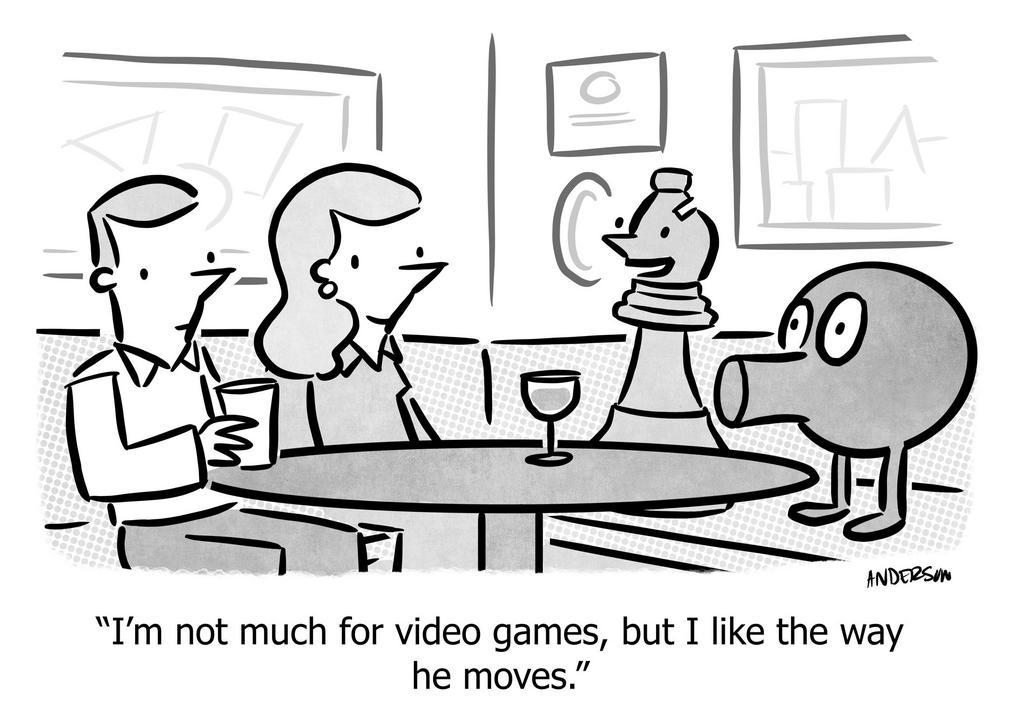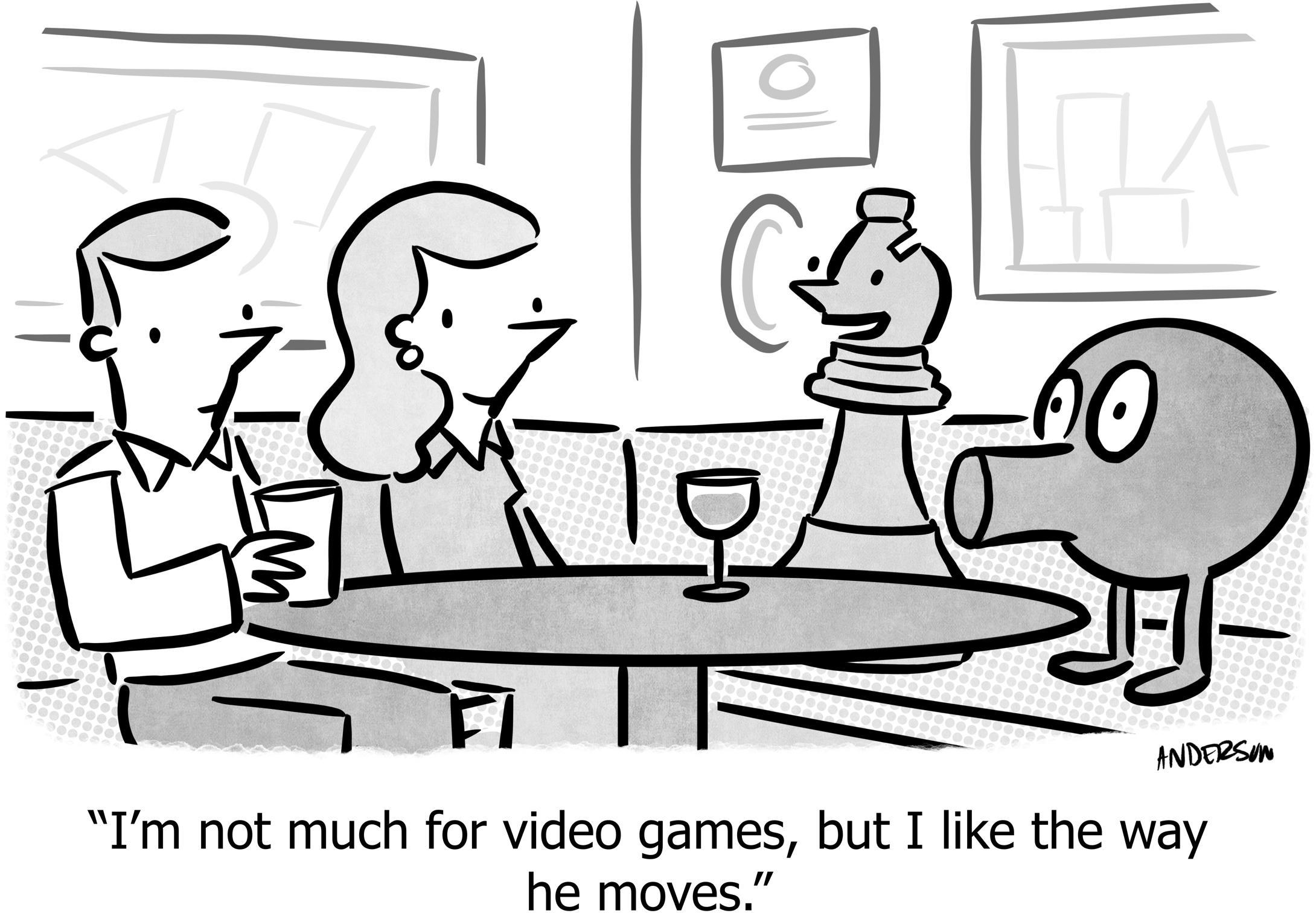Worse, but unique
A perfect storm created a renaissance in chess: COVID driving people to occupy their minds in physical isolation, the hit Netflix show “The Queen’s Gambit,” and a surge of chess Twitch streamers and YouTubers fueling that nascent interest in chess with equal parts education and entertainment.
And so beginners learned openings like the titular Queen’s Gambit—one of the most popular ways for white to open the game. It’s easy to find courses, books, and online content about the Queen’s Gambit because it’s been popular for more than a hundred years. The top chess players in the world today still play the Queen’s Gambit; if they play it, it must be good! And it is.
Except, it’s smarter for beginners to play worse openings.
“Worse” is an objective evaluation. There are openings, like the King’s Gambit for example, which were popular in the 1800s but have since been “refuted,” meaning that for each move by white, black always has a counter-move which results in black ultimately achieving a superior position. “Superior” as consistently demonstrated in games between top-level humans, as well as computers that are orders of magnitude stronger than those humans. Thus, the King’s Gambit is objectively worse than the Queen’s Gambit.
So why should beginners use the refuted King’s Gambit opening?
First of all, beginners aren’t playing top chess players; they are playing someone near their own strength. At their level, the King’s Gambit isn’t refuted, because neither player has memorized the sprawling branching sequences of all possible moves and counter-moves and counter-counter-moves, ad nauseam. Nor can they figure out the best move in the moment. Anyway, the game will be decided by stupid blunders, not brilliant tactics.
Second, and more importantly, exactly because the Queen’s Gambit is popular, it’s likely that your opponent has also studied it. So it’s quite possible that your opponent knows a defense to the Queen’s Gambit better than you know the attack of the Queen’s Gambit. As you progress in chess, this becomes more and more likely. So now the question becomes: Is your preparation—memorization of the branching forest of moves—better than your opponent’s preparation?
That’s not the sort of “luck” you want to depend on. That’s not a good strategy.
The solution is to learn a refuted-but-not-completely-atrocious opening like the King’s Gambit. It isn’t refuted at your level, and also there’s almost no chance your opponent has memorized any specific defense for it, because “no one plays that.” So they’re reacting to it for the first time, surely not finding all the best counter-moves in the moment. But you have memorized a few of the best moves. So you have a clear advantage, even though you’re a beginner.
This is why leverage, as defined here, results in a superior strategy for products and companies, even if many things about you, your team, your product, and your company, are “worse” than the competition. Playing on your own terms changes the game. “Worse, but unique,” is in fact “better.”
A startup is a “beginner” in the market, facing a variety of “opponents” who have varying degrees of preparation and skill (age, capabilities, customers, brand, funding). A startup needs to fight the competitive battle on its own terms, not attack where the opponent is already strong.
Even on a personal level, you must use your leverage to do something special, be something special, at the intersection of what is special, enjoyable, and what the world needs.
Be yourself. Everyone else is taken.
—Oscar Wilde
Many potential customers won’t want to play your game, and you’ll feel bad when you lose them to a competitor, and when they say mean things about you and your product and your decisions. Especially when it’s in public, on review sites and social media. But don’t worry, you weren’t going to win them anyway—they’re just not into you.
The customers who do want to play your game, will see that you’re the best in that game. Even if you’re two people and there’s a dozen competitors ranging from well-funded, well-covered-by-the-media startups to old-but-reliable incumbents. If you pick a different game, you’re the best at that game, and you can become extremely successful.1
1 In my case, WP Engine powers as many substantial websites as Google Cloud or Digital Ocean, and we still have only 2.3% of that market. That means 98% of potential customers are in fact not customers, and yet WP Engine is a unicorn. By the way, this is another reason why it’s wise to seek large markets.
Even better than “different,” is to be extreme in that difference. Not just a minimal UI, but so minimal it works on the command-line. Not just great design, but so remarkable people buy it only for that, and it’s written up on designer’s blogs. Not just a new algorithm that solves an old problem, but one that uncovers new things that no one else does, even at the expense of missing things that others catch. You can’t do this for all aspects of your product and business—indeed, even a single one is already powerful—but extremity is how you maximize the power of the few things that make you special.
All those competitors cannot play the game as well as you, because you picked something that was not only different, but extreme. They can’t make every choice you made, and since they didn’t, they’re definitionally not the best at your game.
Play your King’s Gambit. Don’t worry if others claim your strategy is refuted. It’s not refuted for you.
Indeed, the fact that they think it’s refuted, is why you will win.
https://longform.asmartbear.com/worse-but-unique/
© 2007-2025 Jason Cohen
 @asmartbear
@asmartbear Simple eReader (Kindle)
Simple eReader (Kindle)
 Rich eReader (Apple)
Rich eReader (Apple)
 Printable PDF
Printable PDF






